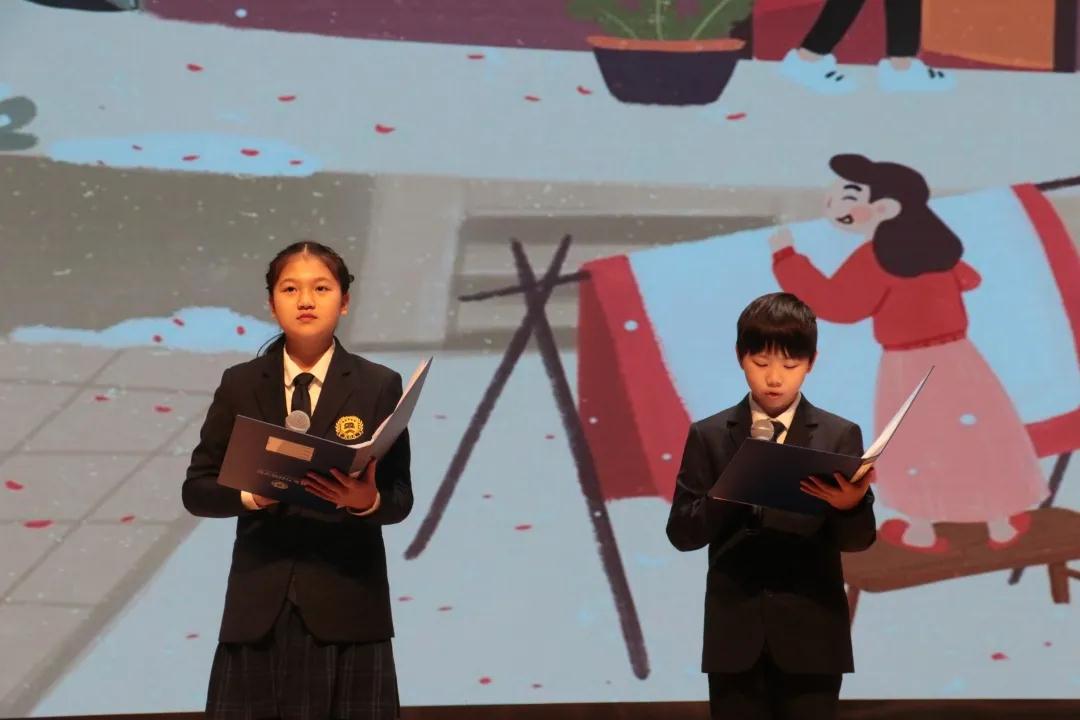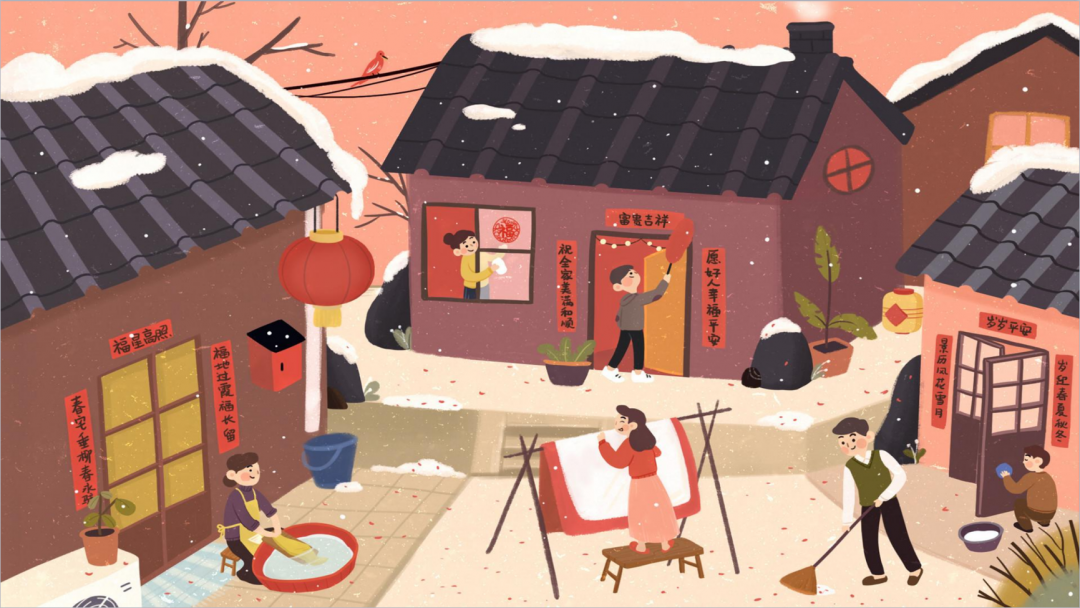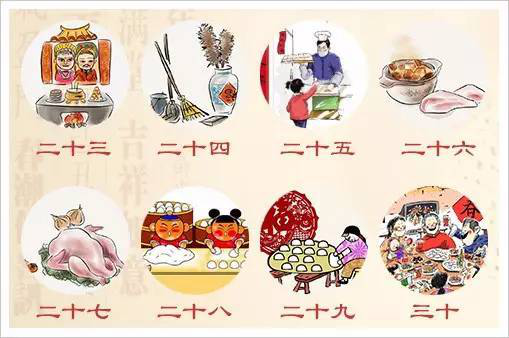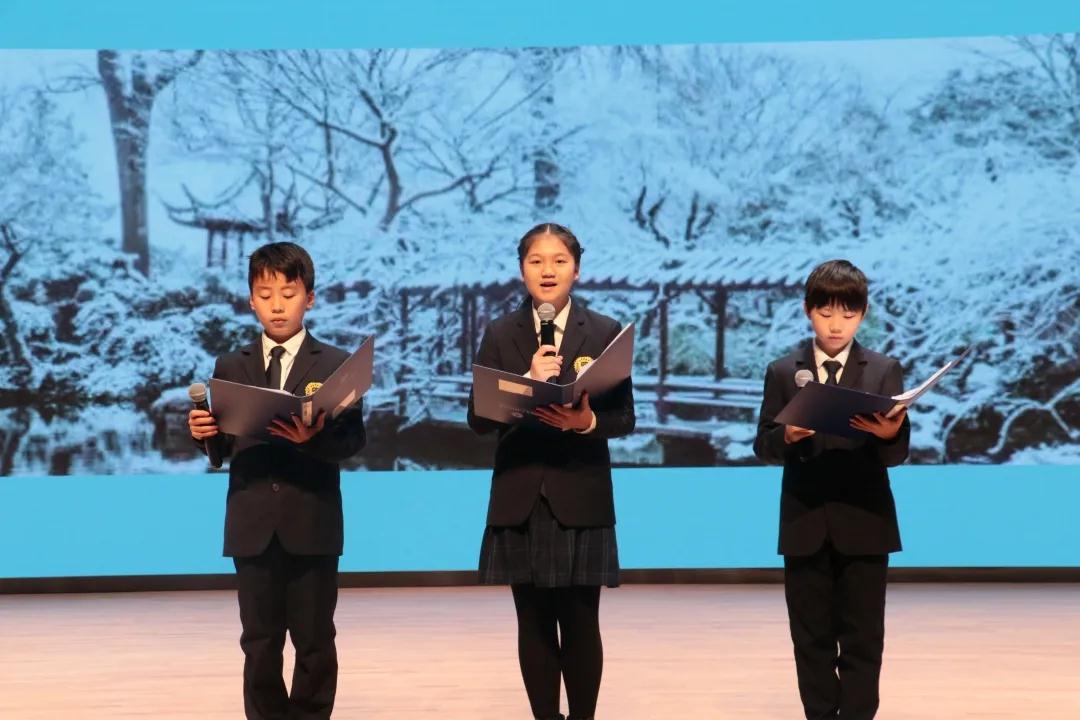校园新闻 | 国旗下的演讲《腊月》
在我国民间称农历十二月为腊月,1月13日星期三就是腊月初一,迎来庚子年的最后一个月,进入春节的倒计时。为什么叫腊月呢?关于腊月的由来,有两种说法。
La Yue is called the twelfth lunar month in China. Wednesday, January 13 is the last month of the year of gengzi on the first day of the lunar month, which marks the countdown of the Spring Festival. Why is it called La Yue?There are two versions about the origin of La Yue.

· 演讲者 G5 Sarah Meng同学、James Shui同学 ·
一说是因为起源于周或秦汉时期的年终猎祭风俗,猎祭就是狩猎取禽兽,以祭祀祖先和神灵。“腊”与“猎”通假,“猎祭”便是“腊祭”,也称“腊”。腊祭的对象,是列祖列宗和五位家神,五位家神是指门、户、天窗、灶、行(门内土地)。因这“岁终之祭”是在农历十二月举行,所以称该月为腊月。
One reason is that it originated from the custom of year-end hunting sacrifice in Zhou or Qin and Han Dynasties. Lie Ji is hunting animals to sacrifice ancestors and gods. “la” and “lie” are interchangeable words. “la ji” is the same as “lie ji”, also called “La”. The objects of La Ji are the ancestors and the five family gods. The five family gods refer to the door, household, skylight, stove and line (the land inside the door). Because this “sacrifice at the end of the year” is held in December of the lunar calendar, so it is called “La Yue”.
另有汉代学者应劭在《风俗通·礼典》中记载:腊者,接也,新故交接,故大祭以报功也。这“腊”字包含有新旧更替、辞旧迎新的意思,岁末之交,祭祀祖先家神,分享丰收的喜悦,祈求人寿年丰。
In addition, Yin Shao , a scholar of Han Dynasty, recorded in 《风俗通·礼典》. 腊者,接也,新故交接,故大祭以报功也。This means that La contains the meaning of replacing the old with the new, saying goodbye to the old and welcoming the new. At the end of the year, sacrifice to the ancestors, share the joy of harvest, and pray for longevity.
腊月是年岁之终,不论是打猎后用猎物祭祖,还是因新旧之交而祈福,都要举办祭祀活动,腊月是个祭祀之月。自周代以来,岁末的腊祭世代相沿,一直到现在。鲁迅的小说《祝福》中,鲁四老爷家每在年底都要祝福,这祝福实际上就是腊祭。祭祀祖先诸神,供物丰盛,场面隆重,气氛肃穆,祈祷虔诚,是名副其实的“一年之大祭”。
La Yue is the end of the year, whether it is to sacrifice to ancestors with prey after hunting, or to pray for blessings at the turn of the old and the new, sacrificial activities should be held. La Yue is a month of sacrifice. Since the Zhou Dynasty, the generations of La Ji at the end of the year have been together until now. In Lu Xun’s novel blessing, Master Lu Si wishes every year at the end of the year, which is actually La Ji. Sacrifice to ancestors, abundant supplies, grand occasion, the atmosphere was solemn, pray to piety. It’s a year’s sacrifice worthy of the name.

腊月,是迎接春节的前奏。首先从喝腊八粥开始,然后人们要扫房、请香、祭灶、封印、写春联、办年货,直到除夕夜。广义地说,过年可以从喝腊八粥就开始了,一直要过到正月十五元宵节才算结束。
La Yue is the prelude to the Spring Festival. First of all, start with the Laba porridge, then people will sweep the house, ask for incense, sacrifice the stove, seal, and write Spring Festival couplets, do new year goods until New Year’s Eve. In a broad sense, Chinese New Year can be said to begin with Laba porridge, and it doesn’t end until the Lantern Festival on January 15.
腊月的活动,老北京的顺口溜就能概括:
The activities of La Yue can be summed up by the doggerel of Beijing Natives.
小孩小孩你别馋,
过了腊八就是年。
腊八粥,喝几餐,
唏哩哗啦二十三。
二十三,糖瓜粘;
二十四,扫房日;
二十五,冻豆腐;
二十六,去买肉;
二十七,宰公鸡;
二十八,把面发;
二十九,蒸馒头;
三十晚上熬一宿;
初一、初二满街走。

腊月,农历中一年最后一个月,对中国人来说,很多重要时间点都在这个月份。而大雪纷飞,寒冰霜冻的腊月,自然也让历代文人们“脑洞大开”。今天,五年级的James Shui同学、Simon Peng同学、Sarah Meng同学为大家带来关于腊月的诗词朗诵,让我们一同感受腊月里的那独有意境与霜雪间的灵动之气。
La Yue is the last month of the lunar year. For Chinese people, many important time points are in this month. La Yue, the snow is flying, the ice is freezing. Naturally it also opened up the minds of the literati of the past dynasties. Today, G5 James Shui、Simon Peng、Sarah Meng selected a group of poems chanting La Yue. Please feel the unique artistic conception of La Yue together.

腊月,历经岁月凝炼的记忆,在远方游子的心头百转千回,是腊味让腊月成为一年中最深情最幸福的时光;是欢声笑语、阖家团圆让腊月成为一年中最难忘最动人的篇章。忆,是一种情怀。而新东方学子即将迎来期末考试的篇章,一路披荆斩棘,乘风破浪,星光不问赶路人,时光不负有心人,希望同学们考出水平、考出风采,在接下来的期末考试中加油!加油!